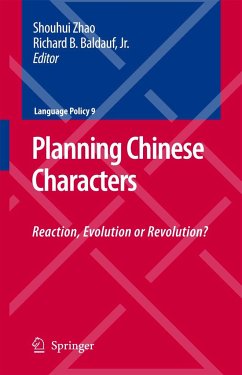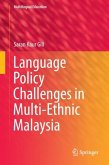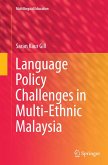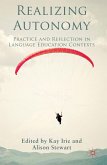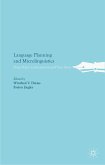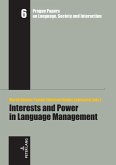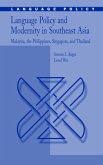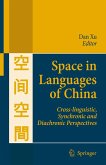One of the remarkable things about Chinese language policy over the millennia has been the power of the writing system to unite what are disparate if related spoken varieties. We have already published one book on PRC language policy in this series, a collection edited by Minglang Zhou that covered the full range of topics including the development of Putonghua (common speech), the status of minority languages, and some interesting chapters on the reform of the writing system. This last subject is of such complexity and importance to justify adding to the series a book going into more detail on developments in efforts to manage and cultivate the writing system in the last 50 years, taking into account the rapid growth of the Chinese economy and the technological developments associated with computers and the web. It is important, we feel, to back up the common generalizations about language policy with detailed studies of specific topics, where one can observe at close hand the plans and activities of language managers, the problems they set out to solve, and their successes and failures. This is precisely what Zhao and Baldauf set out to do in this full account and analysis of the challenges met by recent efforts to adjust the Chinese writing system to new demands. We would like to express our thanks to the authors and to the others who contributed to the production of this volume.
From the reviews:
"In this book, Zhao and Baldauf have thoroughly examined the unfolding of the fate of the Chinese characters in the twentieth century within the conceptual framework of language planning. ... this book provides a comprehensive picture of China's script reform and standardization with a tuned focus on the last three decades, a period that missed much-deserved coverage in scholarly work until now. Thus, it is a significant contribution to both English and Chinese publications on modern China's language planning." (Minglang Zhou, Chinese Language and Discourse, Vol. 4 (1), 2013)
"This thorough investigation from an international perspective is not only of value to Chinese LP studies, but contributes to widening the spectrum of LP research in the world as well. ... the book is carefully constructed; the theoretical investigation is well balanced with readability. The volume is unique in providing a stimulating and critical study of how technology has outstripped political decision-making about language in China ... . thus stimulate scholars to pursue further studies." (Haitao Liu, Language Problems & Language Planning, Vol. 34 (3), 2010)
"In this book, Zhao and Baldauf have thoroughly examined the unfolding of the fate of the Chinese characters in the twentieth century within the conceptual framework of language planning. ... this book provides a comprehensive picture of China's script reform and standardization with a tuned focus on the last three decades, a period that missed much-deserved coverage in scholarly work until now. Thus, it is a significant contribution to both English and Chinese publications on modern China's language planning." (Minglang Zhou, Chinese Language and Discourse, Vol. 4 (1), 2013)
"This thorough investigation from an international perspective is not only of value to Chinese LP studies, but contributes to widening the spectrum of LP research in the world as well. ... the book is carefully constructed; the theoretical investigation is well balanced with readability. The volume is unique in providing a stimulating and critical study of how technology has outstripped political decision-making about language in China ... . thus stimulate scholars to pursue further studies." (Haitao Liu, Language Problems & Language Planning, Vol. 34 (3), 2010)

